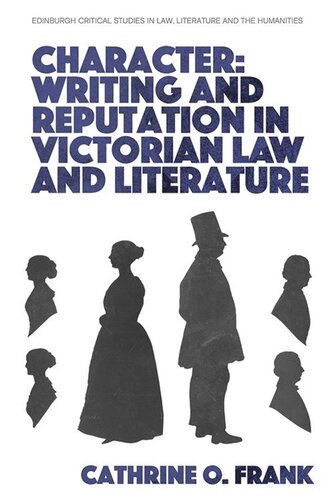

Most ebook files are in PDF format, so you can easily read them using various software such as Foxit Reader or directly on the Google Chrome browser.
Some ebook files are released by publishers in other formats such as .awz, .mobi, .epub, .fb2, etc. You may need to install specific software to read these formats on mobile/PC, such as Calibre.
Please read the tutorial at this link: https://ebookbell.com/faq
We offer FREE conversion to the popular formats you request; however, this may take some time. Therefore, right after payment, please email us, and we will try to provide the service as quickly as possible.
For some exceptional file formats or broken links (if any), please refrain from opening any disputes. Instead, email us first, and we will try to assist within a maximum of 6 hours.
EbookBell Team

4.0
56 reviewsWhy would Hawthorne and Eliot grant their fallen women an anachronistic right to silence that could only worsen their punishment? Why did Bronte and Gaskell find gossip such a useful source of information when lawyers excluded it as hearsay? How did Trollope’s work as an editor influence his preoccupation throughout his novels with libel?
Drawing on a range of primary sources including novels, Victorian periodical literature, legislative debate, case law, and legal treatise, Cathrine O. Frank traces the ways conventions of literary characterisation mingled with character-centred legal developments to produce a jurisprudential theory of character that extends beyond the legal profession. She explores how key categories and representational strategies for imagining individual personhood also defined communities and mediated relations within them, in life and in fiction.